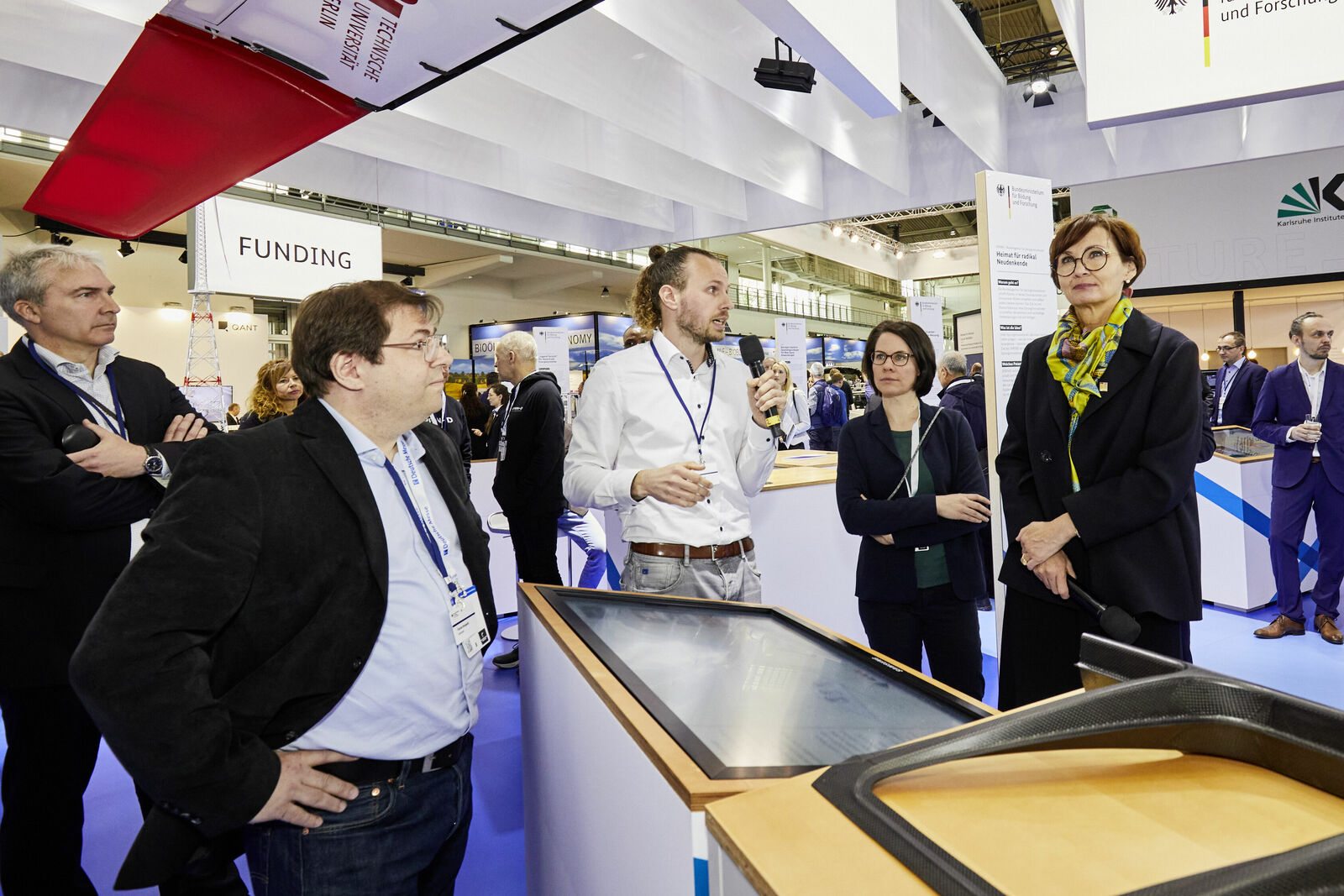During her visit to the Hannover Messe, Federal Research Minister Bettina Stark-Watzinger learned about the cooperation project between science, industry and the start-up scene, whose research approach could solve a major problem for e-vehicle users in remote regions of the world and has enormous potential for the diversification of energy generation and charging infrastructure.
Renewable energy sources are volatile, leading to higher costs for storage systems and network infrastructure. The collaboration between EnerKíte's base-load-capable airborne wind turbines and Elli's charging and storage technology enables grid-independent and constant power supply, even in remote regions. The new Elli Flexpole can be easily and flexibly installed as a fast-charging station and connected to the low-voltage grid thanks to its integrated battery system, without the need for a special transformer or expensive construction work. "We are pleased that our already market-available Flexpole can support this groundbreaking initiative to redefine the limits of electromobility. By combining innovative technologies, we can make a sustainable contribution to the mobility of the future," explains Mark Möller, Chief Technical Officer of Volkswagen Group Charging (Elli).
"EnerKíte systems provide constant power, converting green energy into a reliable source of electricity. With a yield four times higher than conventional wind turbines with the same power, EnerKíte presents an outstanding alternative. This opens up new possibilities for decentralized energy supply and supports the spread of electromobility in regions that were previously difficult to access," explains Florian Breipohl, CEO of EnerKíte.
The innovation project "TechnoHyb" emerged as part of the BMBF Research Campus Initiative and is presented at the booth of the Federal Ministry of Education and Research at the Hannover Messe 2024, which takes place from April 22 to 26. In addition to Volkswagen Group Charging (Elli), EnerKíte, and TU Braunschweig, the following project members were involved: FIT-Umwelttechnik, Fraunhofer Institute for Machine Tools and Forming Technology (among others).
For more information on the topic, visit www.volkswagen.com, www.elli.eco, https://open-hybrid-labfactory.de/forschung-projekte/technohyb, www.enerkite.de









